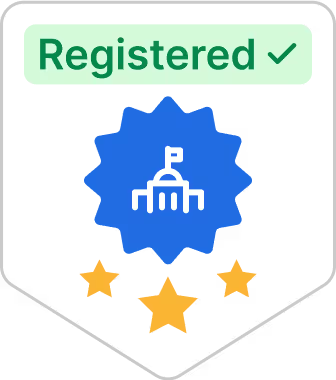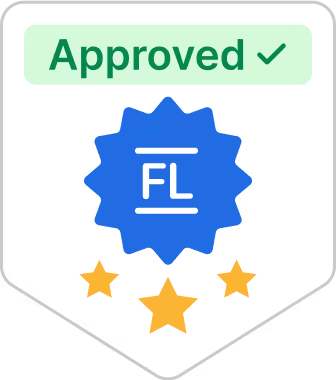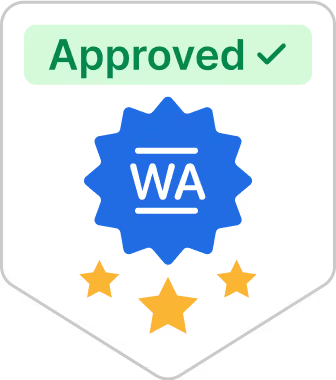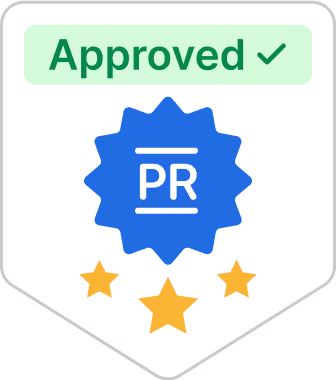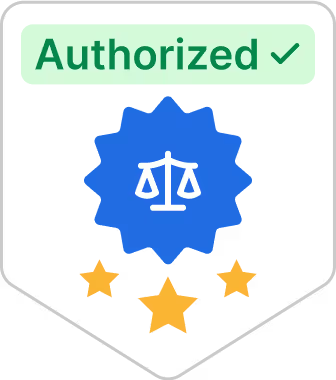A guide on how to start an LLC

So, you’re a small business owner who’s interested in forming an LLC. This means you’ve already researched what an LLC is and how it works.
Now, you’re finally ready to reap the benefits of an LLC: limited liability protection, pass-through taxation, minimal yearly paperwork, flexible corporate structure, and more.
The corporate structure of an LLC is one of the most flexible and streamlined out there. Though the formation process takes a bit of prep work and careful consideration, it’s still relatively straightforward.
So how do you start an LLC without missing any steps, and how much does an LLC cost? And is there a way to avoid some of the bureaucratic burden? Read on to find out the step-by-step basics on how to start your LLC—the easiest way possible.
Step 1: Review your state’s LLC regulations
Every state has its own rules and regulations when it comes to forming an LLC, also known as a Limited Liability Company. This guide provides a solid outline for you to follow, but it’s still important to check the specific rules for your state, so you don’t miss an important step.
For example, California requires you to file a Statement of Information 90 days after filing articles of organization, or every two years. New York doesn’t require this, but does require you to publish a notice of the new LLC in two publications within 120 days of formation. Additionally, an LLC business license filing fee can cost you around $50 to $250, depending on which state you’re filing in and what type of LLC you are forming.
These are a few different types of LLC that you can choose from:
- Single member LLC or Sole Proprietorship
- Multi Member LLC
- Member Managed LLC or Manager Managed LLC
- General Partnership
- Family Limited Partnership
- S Corporation
The type of LLC you form will also influence the regulations you must follow in your state.
Step 2: Name your LLC
The exact state requirements may vary, but one thing always remains the same. Every LLC needs a name!
Here are a few things to consider when naming your LLC:
- Select a name that’s unique and meaningful to you and your business. It’s what you’ll use to file everything from bank statements to sales receipts, so choose wisely.
- Make sure your new company doesn’t share the name of an existing LLC. There’s a list of registered LLC names in every state that you can cross-reference to avoid duplicates or similarities.
- Include an indication that your new business is an LLC. Some ways to suggest this include:
- ‘Name’ Limited Liability Company
- ‘Name’ Limited Liability Co
- ‘Name’ Limited
- ‘Name’ L.L.C.
- ‘Name’ Ltd.
- ‘Name’ LLC
- Double check that your new business name isn’t misleading. It shouldn’t imply any affiliation to:
- Banks
- Insurance companies
- Corporations
- Government entities
Step 3: Select a registered agent
A registered agent is the official contact person for your business and will act as the intermediary between you and all other entities related to your LLC’s formation. They’ll receive any paperwork required to establish a new LLC and will relay important information to you regarding your formation.
Registered agents can be individuals or companies, as long as they’re 18 years of age and have a physical address in your state of registration.
You’ll want to pin down your registered agent before going any further in the LLC formation process because states will ask for their name and address on articles of organization. You can choose your registered agent from a state-provided list which can be a commercial registered agent or non-commercial registered agent. You can also search for your own third party, or choose someone within the company to hold the position.
Step 4: Submit articles of organization
Your articles of organization document is the first breath of life into your LLC. This important paperwork is typically filed at the Secretary of State’s office, and requires some basic information like:
- LLC name
- Registered agent’s name and address
- Primary place of business
- Management type
- Purpose of the LLC
Articles of organization may also be referred to as a certificate of formation. Whatever the name, this is a big step for your newfound LLC.
Step 5: Create an operating agreement
Operating agreements outline how your LLC will function. Who holds what shares? How will you determine that amount? What’s the flow of management?
This isn’t a requirement in most states; however, it’s recommended that you draft an outline of your business plan for the internal team, regardless of whether or not you have to submit it formally. That way, your team can know what to expect when it comes to day-to-day operations, as well as long-term goals for your LLC.
Here are some items you should include in your operating agreement:
- Division of profits and losses
- Breakdown of ownership
- Managerial board (if there is one)
- The limits on sharing and transferring shares
- Requirements for board voting
Step 6: Establish an employer ID number
For federal income tax purposes, the IRS treats LLCs as either corporations or partnerships, depending on how they’re structured.
Does your business have employees? Then you’ll need to apply for EIN, or Employer Identification Number, to start your LLC. Otherwise, employees will have no way to report their employment, and the IRS will not be able to separate your LLC from sole proprietorship for tax purposes.
Step 7: Open a business bank account
Barring any additional state-specific requirements, the last step is to open a business checking account.
You should open your bank account under your LLC’s name, which helps further separate you and your LLC. The more distance you put between your personal finances and your LLC’s finances, the more protected you are from personal liability in court by the “limited liability” aspect of the LLC.
A smooth introduction to LLCs
We’ve shown you the basic steps on how to start an LLC. Now that you know what you need to kickstart your small business, let us take you the rest of the way.
We offer streamlined solutions to all your government filing issues, including EIN filing, to help you navigate the jargon-filled seas of paperwork.
Sources:
- Nolo. 50 State Guide to Forming an LLC. https://www.nolo.com/legal-encyclopedia/form-llc-in-your-state-31019.html
- Collective. The Ultimate Guide to Naming an LLC. https://www.collective.com/guides/llc-naming/the-ultimate-guide-to-naming-an-llc/
- Business News Daily. Limited Liability Company. https://www.businessnewsdaily.com/3747-limited-liability-company.html












